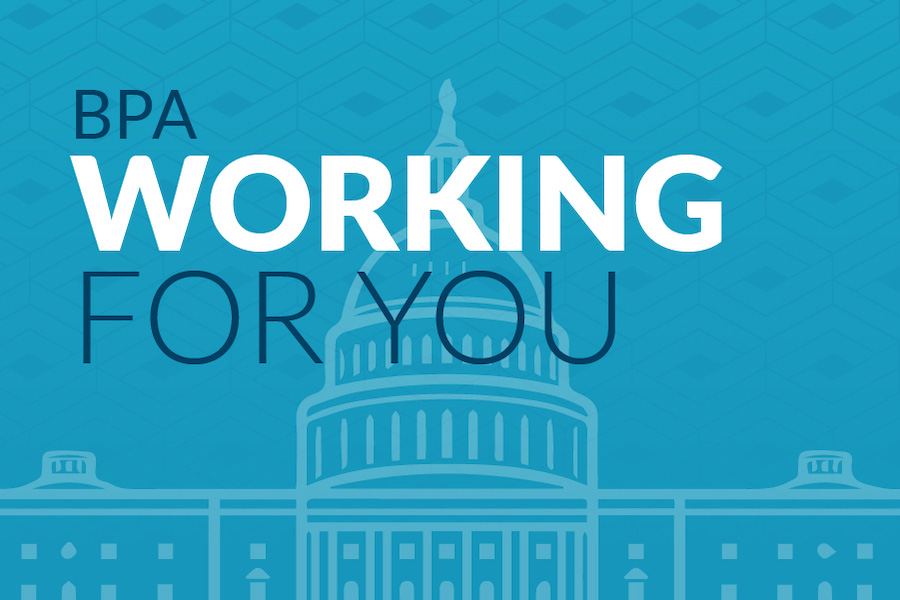
CLEAN Future Act Update
March 25, 2021
In early March, Energy and Commerce Committee Chairman Frank Pallone, Jr. (D-NJ), Environment and Climate Change Subcommittee Chairman Paul Tonko (D-NY) and Energy Subcommittee Chairman Bobby L. Rush (D-IL) introduced the Climate Leadership and Environmental Action for our Nation’s (CLEAN) Future Act, which lays out the blueprint for how they propose to combat climate change and reach net zero emissions by 2050. The legislation would authorize $565 billion in spending over 10 years to decarbonize every sector of the economy.
A previous version of the CLEAN Future Act was introduced in January 2020 but ultimately never passed the House, although numerous provisions included in it were subsequently included in other legislation that did pass the House (e.g. H.R.2 and H.R. 4447).
The package sets an interim national goal of reducing emissions 50% below 2005 levels by no later than 2030 and calls for a Federal clean energy standard of 100% clean electricity by 2035. As part of the clean energy standard framework, the bill also establishes a carbon mitigation program through which the EPA Administrator may award funds for activities that improve energy efficiency, among other activities.
From a residential energy efficiency standpoint, the package includes HOPE for HOMES (with the multifamily addition) funded at $16 billion over 10 years. The language in the package will be replaced with the most updated version once the House Energy and Commerce committee marks up the bill later this spring/summer. The package also includes the Blue Collar to Green Collar Jobs Act, which contains an Energy Workforce Grant program that would allow companies in residential energy efficiency to apply for grants to cover wages of employees while they are receiving training. Additional key sections are listed below.
Key Sections
- Subtitle D. HOPE for HOMES (with multifamily), authorized at $1.6 billion for 10 years.
- 825. Energy Workforce Grant Program. Directs the Secretary of Energy to establish and carry out a program to provide grants for eligible businesses to pay the wages of new and existing employees during the time period that such employees receive training to work in the energy efficiency and renewable energy sector. Authorizes $70 million per year from FY 2022 to 2031.
- Sec. 251. LIHEAP Authorization. Reauthorizes the Low Income Home Energy Assistance Program (LIHEAP) through FY 2031.
- 301. Energy Saving Building Codes. Amends section 307 of the Energy Conservation and Production Act of 1976 (ECPA) to establish national energy savings targets for model building energy codes, enabling adoption of codes that would require zero energy ready buildings by 2030. Includes additional updates to building code policy.
- 321. Removing Barriers to Efficiency. Suspends preemption for Federal appliance and equipment efficiency standards when DOE misses deadlines to update such standards.
- 225. Establishment of Community Solar Programs. Establishes a standard under PURPA that electric utilities offer a community solar program to all ratepayers.
- 242. Grant Program for Solar Installations Located In, Or That Serve, Low-Income and Underserved Areas. Directs the Secretary of Energy to establish a program to provide loans and grants to eligible entities to construct or install community solar facilities or solar generating facilities to serve multi-family affordable housing. Sets conditions for loan and grant applications. Requires funding received through the program to be used for solar generating equipment, job training, deployment support, or administrative expenses. Authorizes $250 million per year from FY 2022 to 2031.
- 351. Investing in State Energy. Amends ECPA to require the Secretary of Energy provide weatherization assistance funds to a state within 60 days of DOE receiving the funds. Further requires the Secretary to provide state energy program funds to a state within 60 days of the Department receiving the funds.
- 824. Energy Workforce Development. Requires the Secretary of Energy, through the Director, to establish a comprehensive, nationwide program to improve education and training for energy-related jobs to increase the number of skilled and trained workers. Directs the Secretary to provide direct assistance through financial assistance, technical assistance, and training opportunities with prioritization of underrepresented communities.
You can read the whole CLEAN Future Act here.
